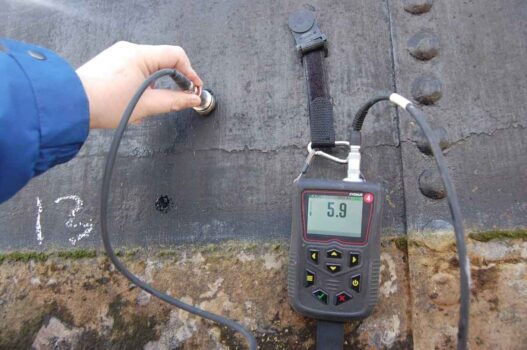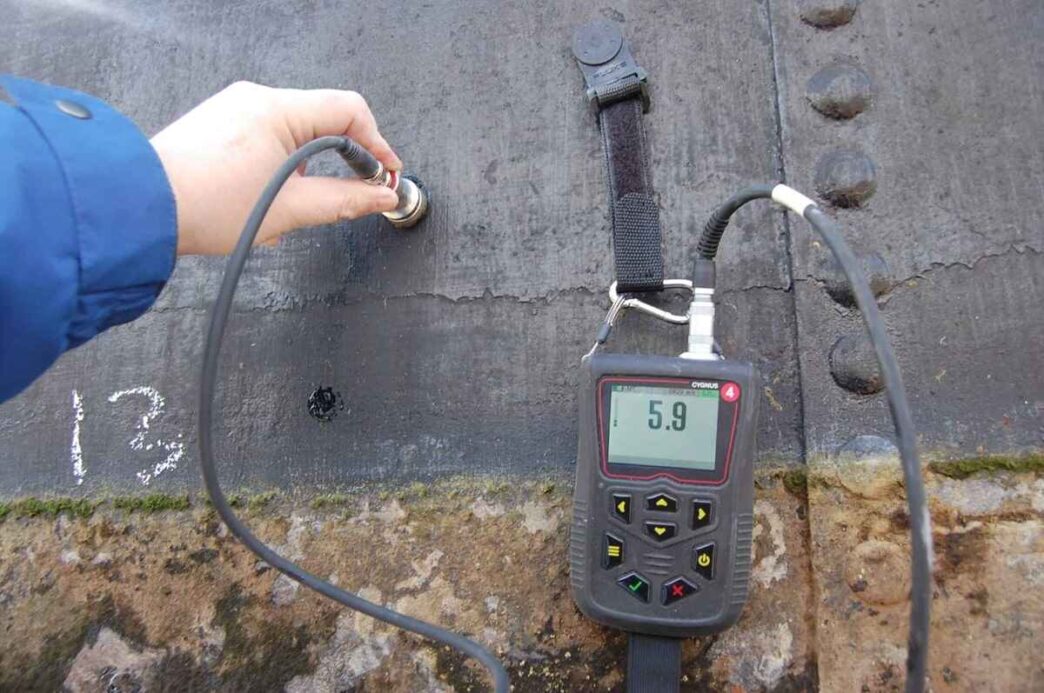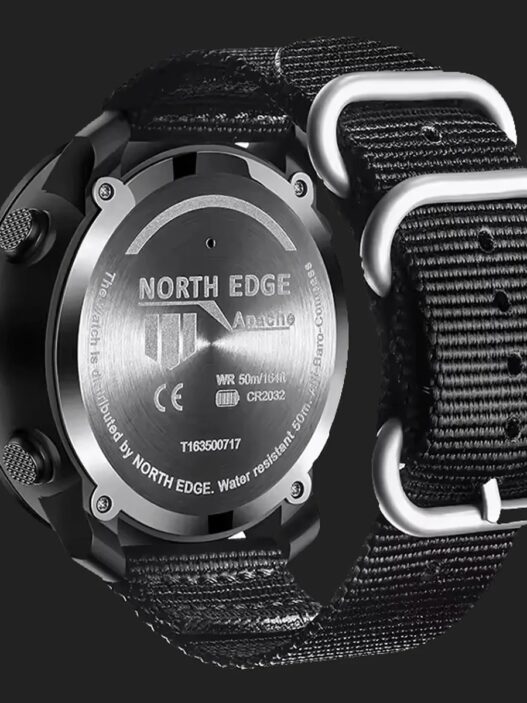In industries where metal components are crucial to safety and performance, accurate measurement of material thickness is vital. Whether you’re monitoring corrosion in pipelines, inspecting structural steel, or assessing the integrity of manufacturing parts, having the right metal thickness tester is essential. Cygnus Instruments, a leading provider of non-destructive testing (NDT) technology, offers a range of cutting-edge ultrasonic testers and digital thickness gauges to meet the diverse needs of industries requiring precision and reliability.
In this blog, we’ll discuss the importance of using a metal thickness tester, the differences between ultrasonic and digital testing methods, and why Cygnus Instruments is a trusted choice for accurate, non-destructive metal thickness measurement.
The Importance of Metal Thickness Testing
Metal thickness measurement is a critical part of many maintenance and quality assurance processes. Over time, materials like steel, aluminium, and other alloys can degrade due to factors such as corrosion, wear, or manufacturing defects. As metal components thin out, they become more vulnerable to failure, which can lead to costly repairs, environmental damage, or safety hazards.
For example, in the oil and gas industry, the thickness of pipelines can be affected by corrosion from chemicals or environmental conditions, risking leaks and potential disasters. Similarly, in construction, the integrity of metal beams and frames must be regularly checked to ensure the safety of buildings and bridges. Regular use of a reliable metal thickness tester allows businesses to identify thinning materials early and take corrective action before problems escalate.
How Metal Thickness Testers Work
A metal thickness tester uses non-destructive methods to measure the thickness of a metal material. There are various types of testers available, but two of the most commonly used methods for metal thickness testing are ultrasonic testing and digital thickness gauging. Both methods provide accurate, real-time measurements without damaging the material being tested.
Ultrasonic Metal Thickness Testers
Ultrasonic testing is one of the most widely recognised methods for measuring metal thickness. The principle behind ultrasonic testing is based on the transmission of high-frequency sound waves into the material. When the sound waves hit the back surface of the metal or an internal boundary, they reflect back to the sensor. The time it takes for the sound waves to return is then measured, and the thickness of the material is calculated from this time interval.
Cygnus Instruments offers advanced ultrasonic metal thickness testers, such as the Cygnus 4+ and Cygnus 1, which are designed for high-precision measurements even in challenging environments. These testers are especially useful for inspecting thick-walled materials, such as pipes, tanks, and structural components, and can provide accurate readings even when there is a coating or corrosion on the surface.
The benefits of ultrasonic testing include:
- Non-Destructive: Ultrasonic testers do not damage the material being tested, making them ideal for on-site measurements where maintaining the integrity of the metal is crucial.
- High Accuracy: Ultrasonic testing provides highly accurate readings, making it suitable for applications where precision is critical.
- Versatility: These devices can be used to measure a wide range of materials and alloys, including ferrous and non-ferrous metals.
- Durability: Ultrasonic testers from Cygnus are designed to withstand harsh environmental conditions, ensuring reliable performance in a variety of industrial settings.
Ultrasonic metal thickness testers are ideal for situations where high accuracy is required for thick materials or when inspecting components with coatings or corrosion.
Digital Thickness Gauges
While ultrasonic testers are designed for high-precision measurements of thicker materials, digital thickness gauges offer an excellent solution for routine measurements, particularly for thinner materials or surface coatings. Digital thickness gauges use technologies such as eddy current or electromagnetic induction to measure the thickness of metal and coatings. These devices are typically lighter, more portable, and easier to use for quick, on-the-spot measurements.
Cygnus Instruments also provides a range of digital metal thickness testers that are designed for fast, reliable measurements. These gauges are particularly well-suited for applications where speed and convenience are important, such as in production environments or during regular inspections of coatings.
Key advantages of digital thickness gauges include:
- Ease of Use: Digital gauges are often simple to operate, with clear displays that provide instant readings, making them ideal for technicians with minimal training.
- Quick Results: These gauges deliver real-time readings, ensuring rapid assessments and increased efficiency in high-volume or time-sensitive environments.
- Portability: Digital gauges are lightweight and compact, making them ideal for field testing, on-site measurements, and use in tight spaces.
- Ideal for Coatings: Digital thickness gauges excel at measuring coatings such as paint, galvanisation, or plating, providing essential information for quality control.
Digital thickness gauges from Cygnus are an excellent choice when you need quick, accurate results without sacrificing reliability. These devices are commonly used in industries such as manufacturing, automotive, and construction, where frequent and fast testing is required.
Why Choose Cygnus Instruments for Metal Thickness Testing?
Cygnus Instruments has built a reputation as a leading provider of high-quality metal thickness testers, offering both ultrasonic and digital testing solutions. With decades of experience in the field of non-destructive testing, Cygnus is known for providing accurate, durable, and user-friendly devices suitable for a wide range of applications.
Here’s why Cygnus Instruments is the trusted choice for professionals seeking precision and reliability in their metal thickness testing:
- Advanced Technology
Cygnus Instruments stays at the forefront of non-destructive testing technology, continuously developing cutting-edge tools designed for high accuracy and performance. Both ultrasonic testers and digital thickness gauges are equipped with the latest features, including automatic calibration, multiple scanning modes, and real-time data processing. - Durable and Reliable
Cygnus metal thickness testers are built to withstand tough working conditions. Whether you are working in an offshore oil rig, a manufacturing facility, or a construction site, Cygnus devices are designed to provide reliable results even in extreme environments. - User-Friendly Design
One of the standout features of Cygnus products is their ease of use. Both ultrasonic and digital testers come with intuitive interfaces, simple controls, and clear displays, enabling quick, accurate measurements with minimal training. - Versatility Across Industries
Cygnus offers a broad range of metal thickness testers suitable for various industries, from oil and gas to aerospace, construction, and manufacturing. Whether you need to measure thick structural components or thin coatings, Cygnus has a product that meets your specific requirements. - Customer Support and Training
Cygnus Instruments provides extensive customer support to ensure that you get the most out of your equipment. From technical assistance to training programmes, Cygnus is committed to helping you maximise the efficiency and accuracy of your metal thickness testing. - Cost-Effective Solutions
Despite their advanced features, Cygnus Instruments offers competitive pricing on their ultrasonic and digital thickness testers. Investing in a Cygnus product ensures long-term value, helping to reduce the costs of repairs, replacements, and downtime in your operations.
How to Select the Right Metal Thickness Tester
Choosing the right metal thickness tester depends on several factors, including the material being tested, the measurement range, and the type of environment in which the device will be used. Here are some key considerations when selecting a metal thickness tester:
- Material Type: Make sure the tester is suitable for the type of metal you are working with. Some testers work better with ferrous metals, while others are more suitable for non-ferrous materials or coatings.
- Thickness Range: Consider the range of thicknesses you need to measure. For thicker materials or more complex geometries, ultrasonic testers are usually the best option. Digital thickness gauges are ideal for measuring thinner metals or coatings.
- Portability: If you need to perform tests in the field or in tight spaces, choose a compact, portable device like the Cygnus handheld testers.
- Speed and Efficiency: If you need rapid results, digital gauges are ideal for quick, high-volume testing. Ultrasonic testers, while more precise, may take slightly longer to provide readings.
Cygnus Instruments offers a range of products tailored to meet these diverse requirements, ensuring you can find the right metal thickness tester for your specific needs.
Conclusion
Accurate metal thickness measurement is essential for maintaining the integrity and safety of metal components across industries. Whether you’re using an ultrasonic metal thickness tester for high-precision measurements or a digital thickness gauge for fast, efficient testing, Cygnus Instruments provides the tools you need to ensure the durability and performance of your materials.
With their commitment to quality, cutting-edge technology, and exceptional customer support, Cygnus Instruments remains a trusted partner for professionals seeking reliable, non-destructive testing solutions. Investing in a Cygnus metal thickness tester means ensuring the long-term safety, quality, and performance of your metal assets.










